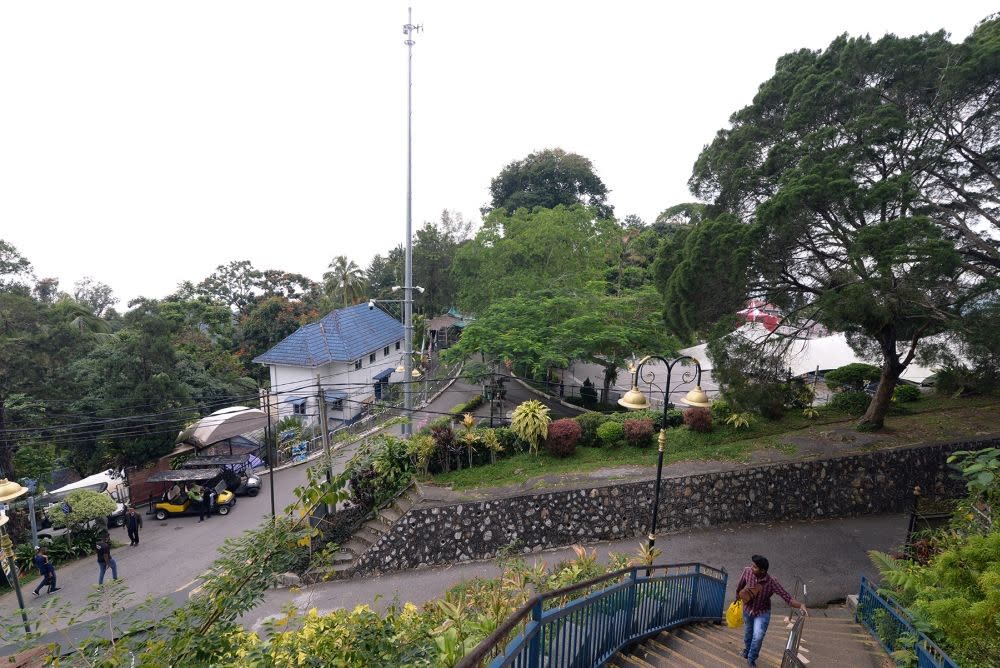Report: Penang Hill Corporation’s RM245m cable car project will only affect about 50 trees, says GM

KUALA LUMPUR, March 9 — The RM245 million cable car project at Penang Hill will only affect about 50 trees in the surrounding forest, and even so these will be moved elsewhere and not chopped down, English national daily The Star reported today.
The trees that would be affected are mainly at the lower parts of the forest affecting only a few species like the African tulip (Spathodea campanulata), royal palm and oil palm (Elaeis guineensis).
“About 50 trees will be relocated out of the more than 7.7 million trees on the hill. They are neither huge nor heritage trees. We plan to transport smaller plants wherever possible and replant them at suitable locations.
“We actually got input and approval from Forestry Department officers for the removal of the trees to make way for the pylons. Our goal is to ensure environmental sustainability,” Penang Hill Corporation (PHC) general manager Datuk Cheok Lay Leng was quoted as saying.
Penang Hill and its surrounding area are recognised as Unesco biosphere reserves.
“The Penang Hill Biosphere Reserve has a core area, buffer zone and transition area.
“The cable car system will be built only in the transition area, where economic activities are allowed,” the PHC general manager said.
He cited other Unesco biosphere reserves in South Korea and Portugal that also benefit from a cable car system.
PHC and the project coordinator are now awaiting authorisation for its building and earthwork plans, as the Environmental Impact Assessment (EIA) was done, and planning permission obtained.
Only five towers will be built in the forest and the other 10 towers will be erected near the upper and lower stations, Cheok told the English daily.
“The area to be cleared would only be for the base of the pylon — the smallest area being 3m x 3m while the largest area is about 7m x 7m, depending on the height of the pylons which range between 7m and 56m.
“No heavy machinery will be required on-site, and construction materials will be delivered via a jeep track, and a winch will be installed above the existing cascade drains to transport the materials to the construction site.
“No new paths or roads will be built for this project,” he said.
Cheok said that the entire construction would take from 18 to 24 months depending on the weather conditions and the hand-dug caisson method would be employed to build the foundations, minimising on-site clearing.
Meanwhile, Sahabat Alam Malaysia president Meenakshi Raman told The Star that the organisation was very disappointed that the EIA was not published for public viewing and participation.
“We are worried that the cable car project will gravely impair these sensitive areas,” she reportedly said.
Last week, it was reported that local rail company Hartasuma Sdn Bhd was awarded the 2.7km cable car project through a public-private partnership (PPP) on design, finance, build, operate and transfer. The project is based on a 30-year concession period.
The cable car line will have 50 eight-seater carriages and is expected to carry 1,000 passengers per hour to the peak at a speed of six metres per second.



